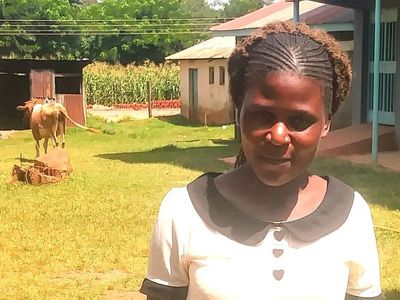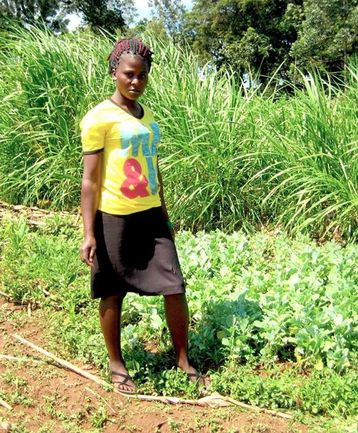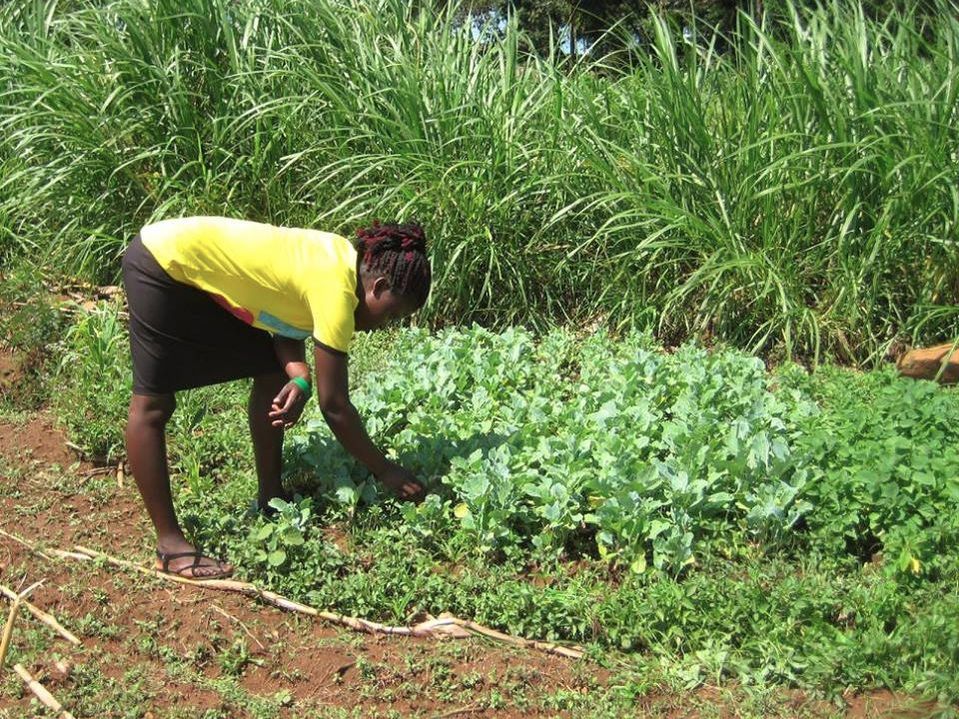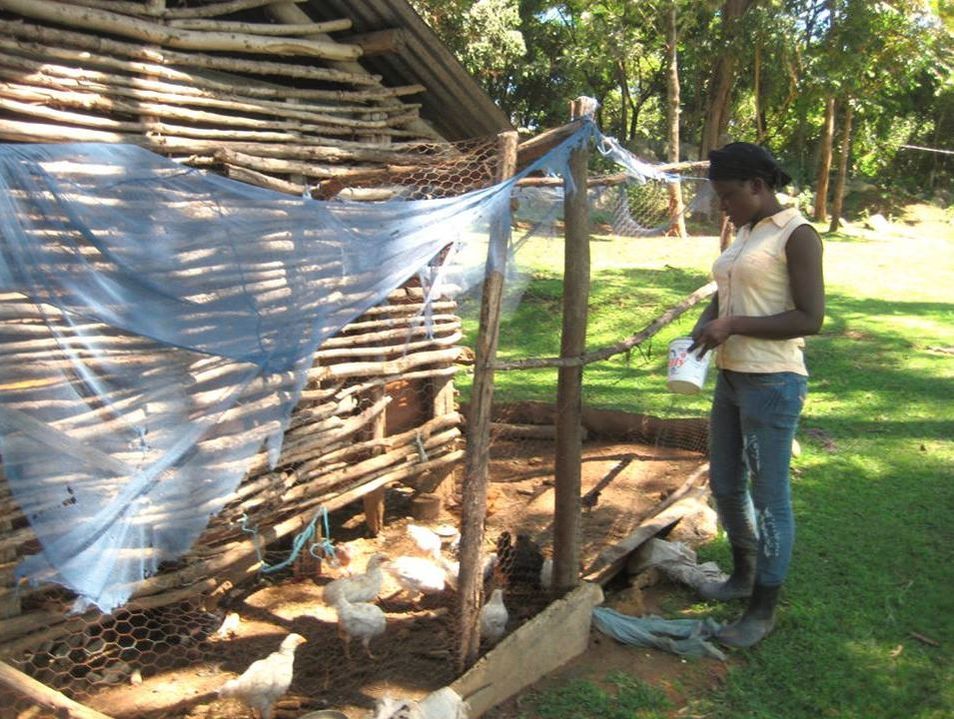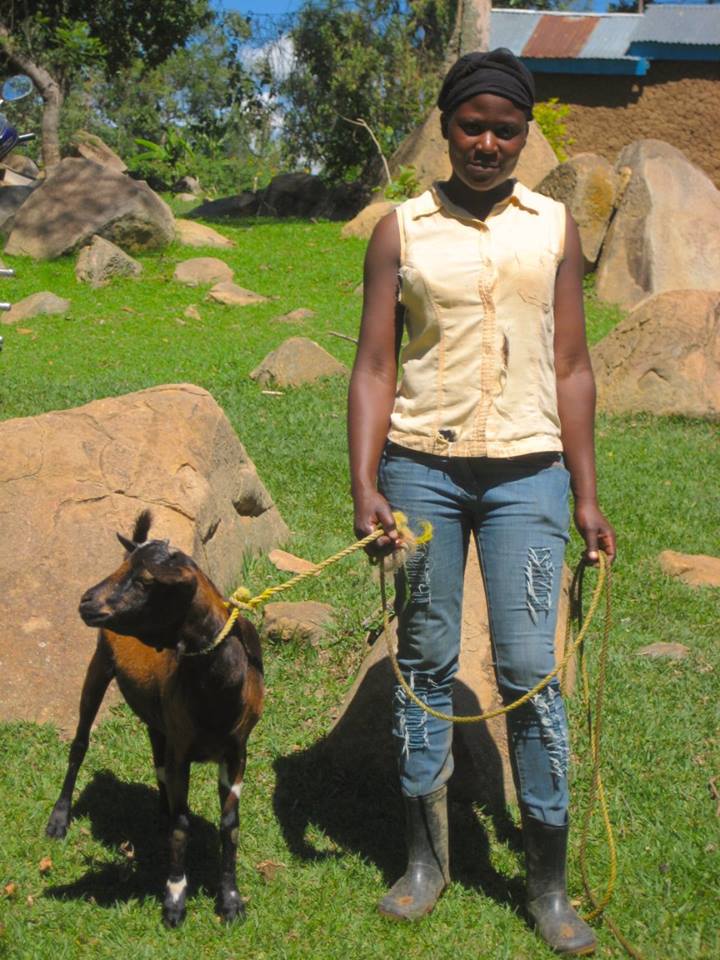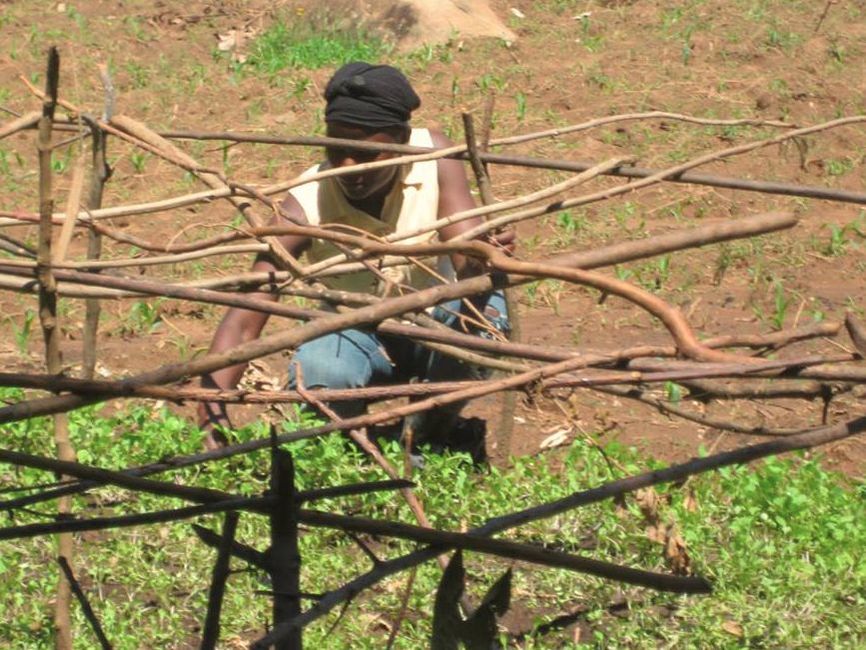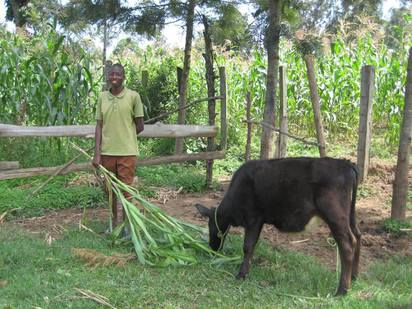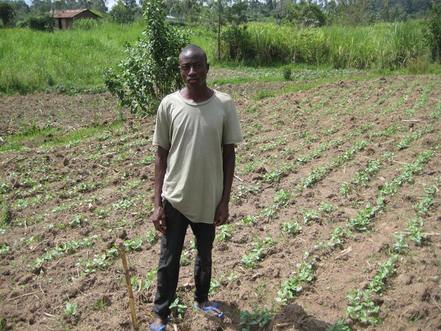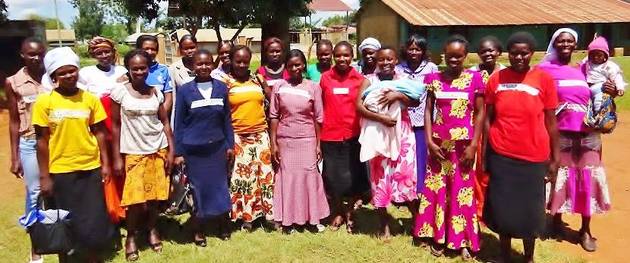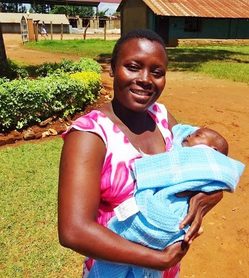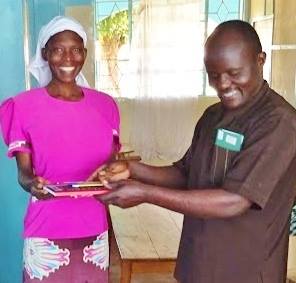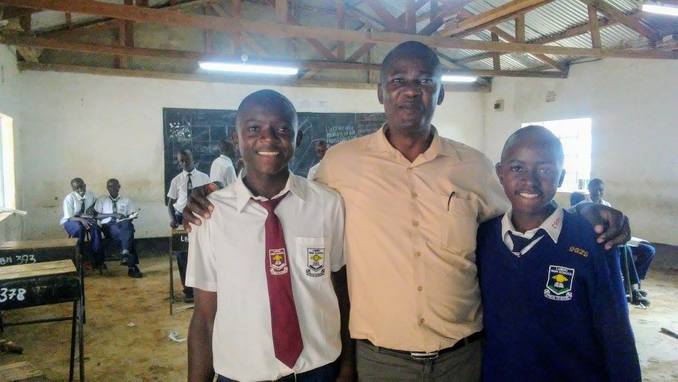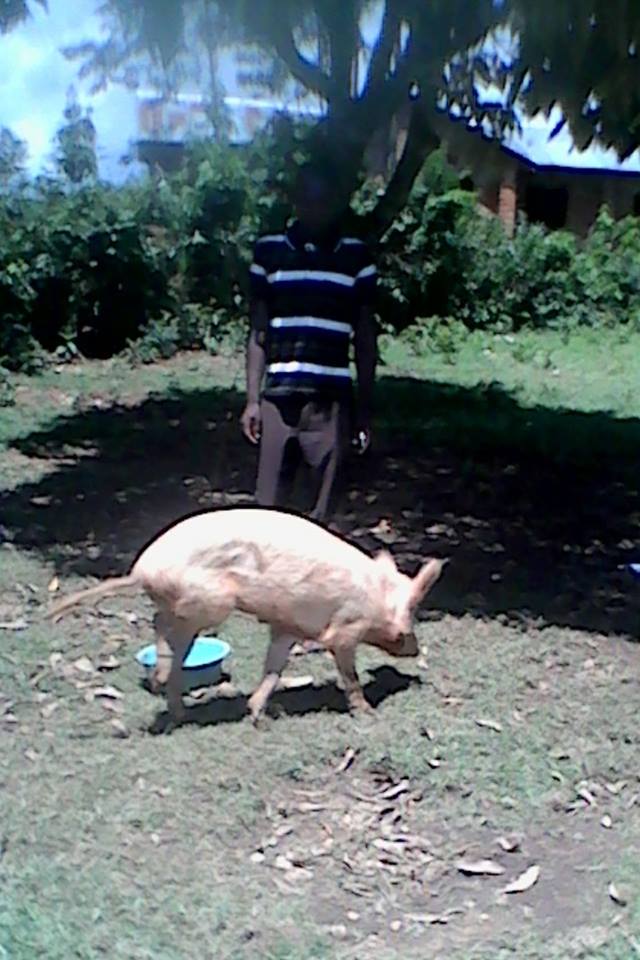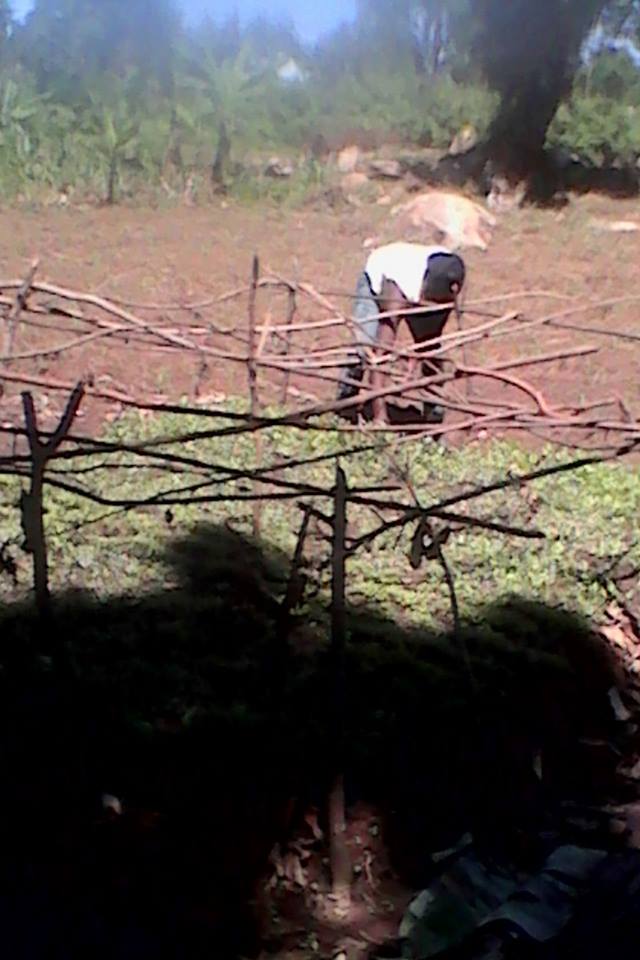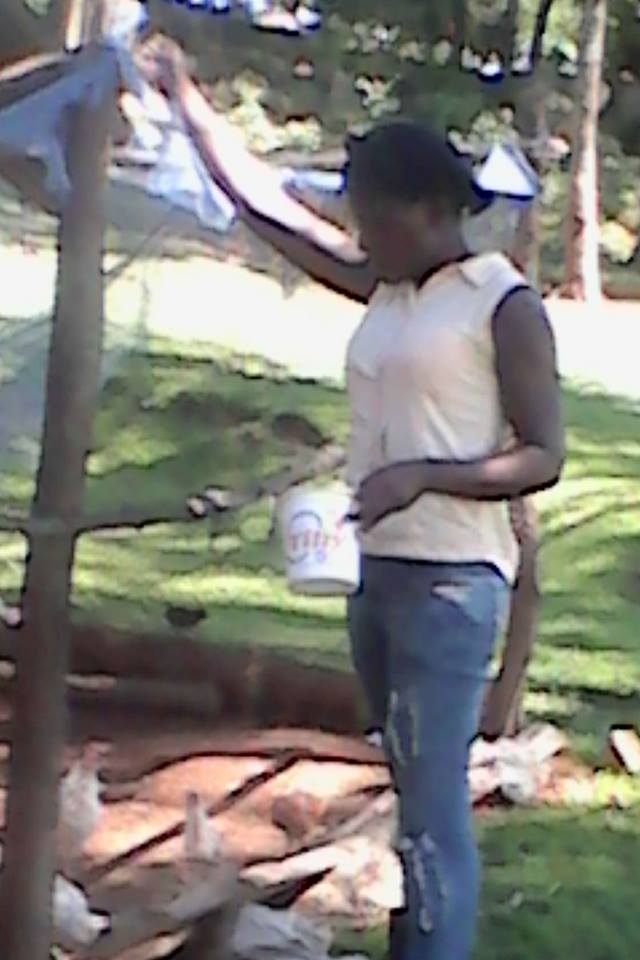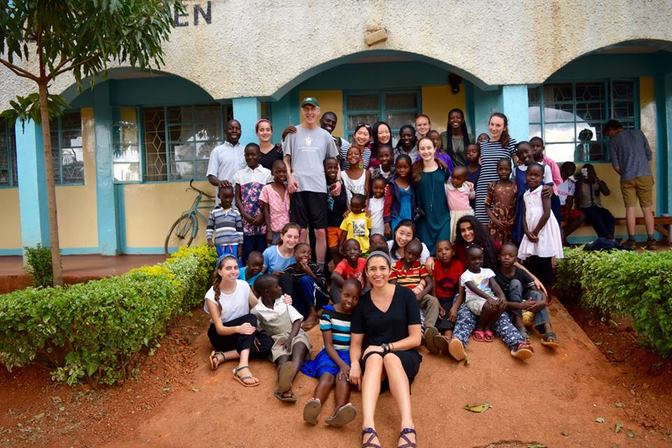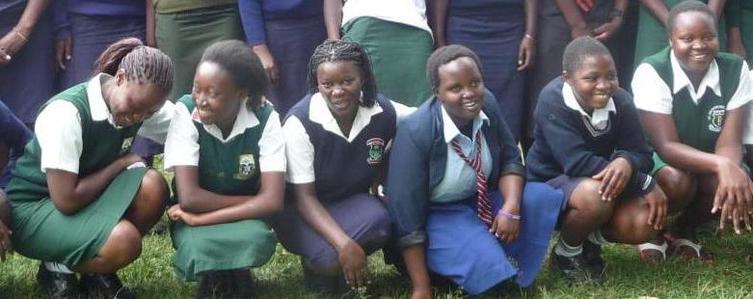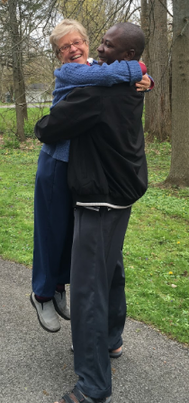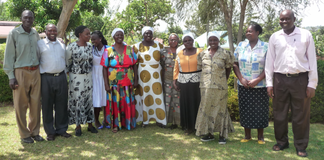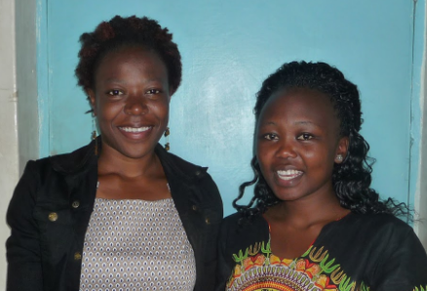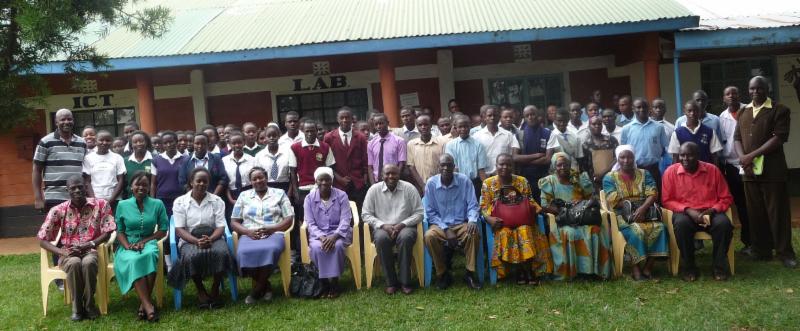Nathan had to leave high school after his sophomore year for lack of fees and was out of school for a year before joining our program. In his first year in the program, he grew maize for both food and sale and reinvested his profits in the purchase of a young calf.
Nathan eagerly applied his lessons in planning, marketing, and cost-effective, mostly organic soil fertility management. He worked hard to make compost for his farm and has demonstrated great foresight by rotating his crops and expanding his business. For example, his cow, now a year old, produces manure that fertilizes his horticulture crops and increases his yields even more. It is likely that his cow could bring more income every month than many of his neighbors can squeeze from their maize farms in an entire year.
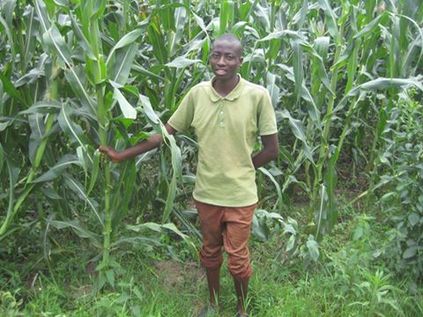
We commend Nathan for his hard work, sacrifices, and dedication to a farm endeavor that has great potential but requires a lot of hard, dirty, and exhausting work. While some of his similarly situated peers reject farm work and search for unavailable white-collar jobs, Nathan is hard at work each day improving the future for himself and his family. We are thrilled to announce that we have recently launched Strong & Healthy Young Women, our fourth small farm business program for out-of-school youth.
The program offers 25 young women training in small business planning and income-oriented farm production or trading, while also providing them with micro-grants to help start their independent ventures. 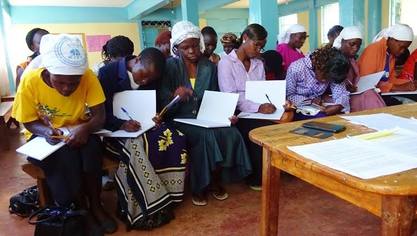 Taking notes during the first workshop Taking notes during the first workshop
Similar to our other agricultural/small business programs, Strong & Healthy Young Women adds important new components. The participants, most of whom are young mothers, will also get training in child & maternal nutrition; participate in workshops on life skills, such as financial literacy; and attend a retreat which will cover sexual and reproductive health.
Building on our success with similar programs, we are excited to be able to keep expanding our efforts to help deserving but vulnerable young people build strong, independent, and healthy lives for themselves and their families.
We are grateful to the Avison Charitable Fund for funding this program. High school students work very hard in Kenya, especially at boarding school where they are tasked with up to sixteen hours a day of classes and studying.
The whole experience is considered preparation for a single, comprehensive, three-week examination at the end of high school. Despite this tremendous workload and intense pressure to perform, most students see education as the key to a better life, and they place great value on the opportunity to work hard each day at school. We are proud of all our high school students' efforts and commend them for their dedication. 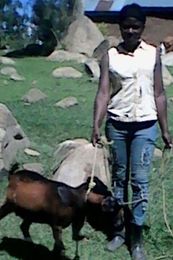
Our small farm business programs manager Alfred Kitayi often sends us photos from his mobile phone that illustrate the positive impact our programs have on the community's youth.
As we move from our third to fourth small "agribusiness" training program, we share in his happiness with the results. Participating youth are now growing more food for their families, earning meaningful cash incomes from their harvests, and reinvesting their profits in farm animals (pictured) and other business activities. Everyone involved is very excited about the outcomes so far! 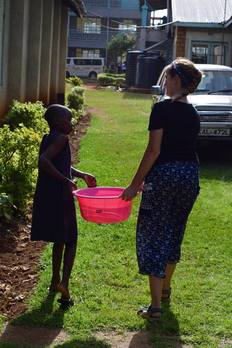 Hauling water for laundry Hauling water for laundry
When Ida visited the U.S. a year ago, he visited the Emma Willard School, a boarding school for girls in Troy, New York. He taught the girls about Kenyan history and the Care Centre’s work. Sukie told Ida that he was planting seeds during his visit, and we’d have to wait and see when, where, and how big they would grow. Ida recently recalled that because seeds he planted at Emma Willard have blossomed and continue to grow, much to the delight of all involved. In March, a group of Emma Willard students visited the project in Kakamega on a cultural exchange trip, which was a great success.
Led by FoK board member, Leah Bennett, 11 girls and 2 chaperones traveled to Kakamega and stayed at the Care Centre for two weeks.The group included girls from China, Korea, Mexico, Bahrain, and Japan, as well as the U.S. The girls learned about life in Kenya, including how to do laundry by hand and Kenyan dances, as well as about Kenyan education and food. They also learned about the history of the project and conditions in Kenya that necessitated it; the history of colonialism and how the current political system emerged; and traditional women’s roles, tribal practices such as female circumcision, and how they gave rise to today's gender roles and expectations. 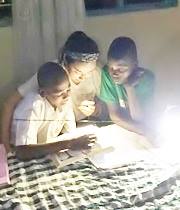
The Emma Willard girls taught the "Whip Nae Nae" dance and spent time with kids playing, reading stories, and helping with homework. The Mexican girls explained more about where they're from, brought traditional costumes, taught the Macarena, and handed out Mexican candies.
Ida’s seeds grew and multiplied when the Emma Willard girls returned to school committed to raising funds for and awareness of the Care Centre and its work. We are pleased to announce that Friends of Kakamega (FoK) and the Kakamega Orphans Care Centre (KOCC) have embarked on a promising partnership with Crossroads Springs Africa (CSA), a nonprofit organization with a mission similar to ours.
CSA's scholarship coordinator and social worker Grace Wambui, who knows and worked with the students in Hamisi, joined KOCC as a full time staff member and works closely with our bookkeeper Mercy Nawade to pay CSA student fees and with Administrator Nelson Ida to place students and provide emotional support, advice, and guidance to CSA students.
CSA has expressed gratitude to FoK and to the Care Centre management, leadership, and staff for their invaluable help in making the partnership and its early accomplishments possible. We at Friends of Kakamega are excited to work with CSA as it continues to sponsor Hamisi high school students, expands its support to students in Kakamega, and begins to send promising graduates to colleges and universities. Friends of Kakamega, Crossroads Springs Africa, and the Kakamega Orphan Care Centre have a growing sense of the promising possibilities for our future together as we enable even more students in Hamisi and Kakamega to advance their education beyond eighth grade.
|
Friends of Kakamega's News & UpdatesThis page offers occasional highlights, news, and updates about our work in Kakamega. Archives
July 2020
Categories
All
|
Friends of Kakamega is a 501(c)(3) non-profit organization (EIN 56-2375938), and your contributions are fully tax-deductible. No goods or services are provided in exchange for charitable sponsorships and donations.
Copyright © 2017 Friends of Kakamega
Copyright © 2017 Friends of Kakamega

